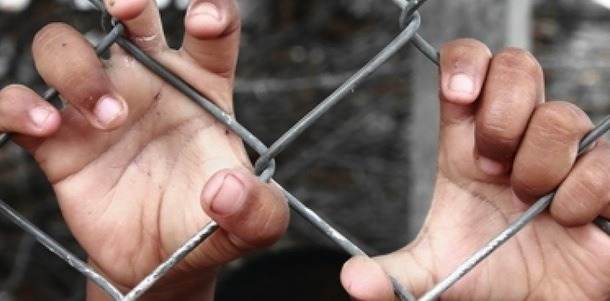A thought piece from Per Capita, by Allison Orr
12 February 2015
Today, the Human Rights Commission has released its report on children in detention, The Forgotten Children. The inquiry has found that more than a third of children in detention in the first half of 2014 were assessed as having serious mental health disorders.
The report calls for a Royal Commission into the long-term impacts of detention on the physical and mental health of children in immigration detention, and to investigate reasons for the continuation of policies that include offshore detention and processing. The report also recommends that all children and their families in detention be released into the community over the next four weeks and detention facilities on Christmas Island be closed.
The report highlights not just the harmful impact of the policy of mandatory detention of children, but also questions the policy’s efficacy. Both Chris Bowen, Immigration Minister in the Labor government, and Scott Morrison, former Immigration Minister in the current government, have admitted that holding children in detention does not deter asylum seekers or people smugglers. This is something Per Capita has also pointed out in our recent report, A Nation All At Sea. Mandatory detention has been ineffective as a deterrence measure, and so needs to be questioned not just from a moral point of view, but also called out as bad policy.
Mandatory detention was introduced under Keating in 1992, and yet during that decade there was a dramatic increase in the number of boats arriving – people fleeing Saddam’s Iraq, the Taliban’s Afghanistan and Iran’s theocracy. Despite having little deterrence value, mandatory detention has remained a core of Australia’s immigration policy and is supported by both major political parties.
Arguing along similar lines that we did in our report, the Human Rights Commission points out that there is no satisfactory rationale for the prolonged detention of children seeking asylum. The policy is demonstrably ineffective in achieving its stated goal, and this inquiry shows that it has serious negative impacts on children’s mental and emotional health.
In response to this report, Peter Dutton, Immigration Minister, has this morning defended the government’s policies, arguing that “stopping the boats” saves the lives of children who might otherwise be endangered at sea. However, it is the government’s suite of policies on asylum seekers that might be increasing the number of children on boats in the first place. The lack of family reunion rights for asylum seekers arriving on boats puts people in a position where they have no choice but to put children on boats with them. This is made clear by looking at the breakdown of boat arrivals by age and gender after the introduction of TPVs, which shows an increase in the number of women and children. Providing only temporary protection has also been ineffective as a deterrent, as the number of arrivals shows. Again, we have a policy that causes harm without achieving its stated goal.
This report comes on the back of Human Rights Watch’s World Report 2015, which was released last week, and was highly critical of Australia’s asylum seeker policies. Particularly concerning was the report’s statement that our policies undermine our ability to speak out on human rights protection at an international level. For a country with a solid record of protecting human rights, the report finds that Australia’s “single-minded focus” on ensuring that all asylum seekers are processed at offshore facilities has lead Australia to mute its criticism of authoritarian governments in Sri Lanka and Cambodia in the hopes of winning the support of such governments for its refugee policies.
So our stance on asylum seekers not only leads us to implement policies that are ineffective and cruel, but also has a direct impact on our foreign policy. Â As we argued in A Nation All At Sea, it’s time to change the conversation on this issue. It is in our own interest to develop more sustainable and effective policies for dealing with boat arrivals. Policies like mandatory immigration detention are ineffective, hugely expensive, problematic long-term, and cause harm. We need to call for a better, more sustainable policy response to this important and complex issue, one that goes beyond three word slogans.

